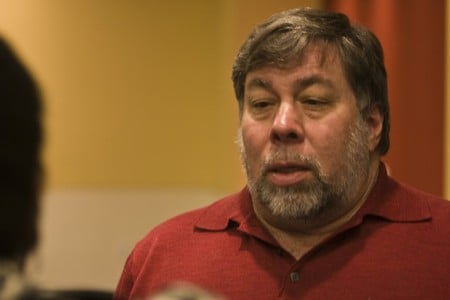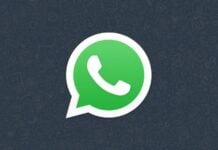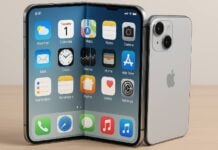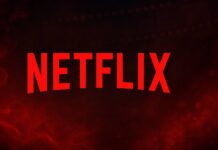Steve Wozniak este alaturi de Steve Jobs unul dintre co-fondatorii companiei Apple dar si una dintre persoanele care l-a cunoscut foarte bine chiar din perioada in care Jobs era student. Cei doi au pus bazele companiei Apple in garajul familiei Jobs din California insa cativa ani mai tarziu Wozniak a renuntat la pozitia detinuta in cadrul companiei Apple, pozitie pe care nu a mai preluat-o nici in ziua de astazi. Wozniak a fost de acord sa vorbeasca intr-un interviu despre fostul CEO al companiei Apple iar mai jos aveti declaratiile facute de catre el.
Are people coming up to you in restaurants, wanting to talk?
No, they are being polite. The waiters are always saying things. But people are holding off more than normal. Usually people come up to me when I’m out at dinner. Everyone wants to express their own emotions and feelings which are strong and deep. They look for, “Where can I express it?” I don’t want to be the focal point. But my phone was ringing constantly.
What was Steve like in the early days?
Steve was very organized and operational minded. He never tried to do any computer design stuff when I was around. He knew it was pointless. From the day we met he found other ways. I was just such a hot shot designer of things, so ahead that nobody would try to do things around me.
How did you and Steve come up with the idea for the first Apple product, the Apple I?
Oh, a lot of people saw the Apple I before Steve Jobs even knew about it. I was in the Homebrew Computer Club. Steve was up in Oregon, working at an orchard, in a commune. We were really not in touch. But I got inspired to help this revolution. People in our club thought the personal computer would affect everyone’s life. We thought everyone would have a little computer, a little thing with switches and weird numbers on it, and people would learn to program to operate a computer. We didn’t think it would be normal stuff like it turned out to be.
I never wanted to run a business. I had a perfect job for life at HP. I went to club meetings every week and I passed out my schematics for the Apple I, no copyright, nothing, just, “Hey all you guys here is a cheap way to build a computer.” I would demo it on a TV set.
Then Steve Jobs came in from Oregon, and he saw what the club was about, and he saw the interest in my design. I had the only one that was really affordable. Our first idea was just to make printed circuit boards. We could make them for 20 dollars and sell them for 40 or something like that. I had given the schematics away. But Steve thought it could be a company.
This was actually our fifth product together. We always were 50-50 partners. We were best friends. We first did the blue boxes. The next one I did was I saw Pong at a bowling alley so I built my own Pong with 28 chips. I was at HP designing calculators. Steve saw Pong and ran down to Atari and showed it to them and they hired him. Whether they thought he had participated in the design, I don’t know and I could not care less. They offered him a job and put him on the night shift. They said he doesn’t get along with people very well, he’s very independent minded. It rubbed against people. So they put him on the night shift alone.
Our next project was when Steve said that Nolan (Bushnell, head of Atari) wanted a one-player game with bricks that you hit out. He said we could get a lot of money if we could design it with very few chips. So we built that one and got paid by Atari.
The legend is that Steve cheated you out of some money on that deal.
The legend is true. It didn’t matter to me. I had a job. Steve needed money to buy into the commune or something. So we made Breakout and it was a half-man-year job but we did it in four days and nights. It was a very clever design.
The next project we did together was we saw a guy using a big teletype machine that cost as much as a car hooked up to a modem dialing in to the ARPAnet. You could get into 12 universities and log in as a guest and do things on a far-away computer. This was unbelievable to me. I knew you could call a local time-sharing company. But to get access to university computers was incredible. So I went home and designed one myself. I designed a video terminal that could go out over the modem to Stanford and then on to the ARPAnet and bring up a list of university computers.
The far-away computers would talk in letters on my TV set. Instead of paddles and balls in Pong, I put in a character generator. The terminal was very inexpensively designed. We sold it to a company called Call Computer. They now had a cheap terminal. Steve and I split the money.
Tell me about making the blue boxes.
These were counterculture days. I was anti-war. Steve was into the hippie thing too. I didn’t do it to make money but just to build a device to explore it, not to save money on phone calls. I was so honest I would not use the blue box to make long-distance calls. But if I wanted to play pranks, like route signals around the world and make them come back to the phone next to me. We did prank calls. I would call a hotel in Paris and make a reservation. At the dorms in Berkeley we would go door-to-door selling blue boxes. One hundred and fifty bucks was the price.
Did you really once call the Vatican and pretend to be Henry Kissinger?
Yes, I did. We were doing a demo of a blue box in a dorm room. I called Italy, then asked for Rome, then asked for the Vatican. I told them I was Henry Kissinger calling from a summit meeting in Moscow. It was 5:30 in the morning in Italy. They told me to call back in an hour. I did, and I spoke to a bishop who said he had just spoken to Henry Kissinger in Moscow.
We also got robbed at gunpoint once. This was in a pizza parlor in Sunnyvale. Two guys looked like they might be interested. We took them back to a pay phone and made a call to Chicago for them. They were enamored and wanted the blue box, but they had no money. We got out to the car and they show up with a gun and stick it in Steve’s face. We gave them the blue box. But they didn’t know how to use it. They gave us a phone number to call so we could tell them how to use it. I came up with this idea of telling them a method that would get them caught by the police, or one that would get them billed. We didn’t do it. But boy it would have been funny. But you don’t want to be dealing with someone who is pointing a gun in your face.
You guys seem like an unlikely pair.
We were very similar. We would hunt through stores in Berkeley looking for Dylan bootlegs. Steve was interested in computers, and he really wanted to find a way to build a computer out of these new devices called microprocessors. He thought that someday they could replace big computers and everyone could have their own computer relatively cheap. Steve had a background working in surplus stores buying stuff cheap and selling it for a lot more. I was shocked when he told me how he could buy something for 6 cents knowing he could sell it for 60 bucks. He felt that was normal and right, and I sort of didn’t. How could you do that? I was not for ripping people off. But then we started Apple and I went with the best advice which is that you should make good profit in order to grow.
Steve was willing to jump right into that. Mike Markkula was the mentor who told Steve what his role would be in Apple, and told me mine. He was the mentor who taught us how to run a company. He’s very low-key. He stays out of the press and he’s not that well-known. But he saw the genius in Steve. The passion, the excitement, the kind of thinking that makes someone a success in the world. He saw that in Steve.
Mike Markkula had worked at Intel in engineering and marketing. He really believed in marketing. He decided that Apple would be a marketing driven company. He was introduced to us by Don Valentine. Don had come to the garage and I ran the Apple II through its paces and he said, “What is the market?” I said, “A million units.” He asked me why that was and I sad, “There’s a million ham radio operators and computers are bigger than ham radio.” We didn’t quite get the formula. Steve Jobs and I had no business experience. We had taken no business classes. We didn’t have savings accounts. We had no bank accounts. I paid cash at my apartment — I had to, because of bounced checks.
Was Steve more into business than you were?
He understood the technology well enough to know that I was the best designer. He knew that. He had seen other companies and he knew that you need a businessman who understands technology. He was very much a technologist businessman. He wasn’t an engineer. He didn’t do any hardware or software.
Randy Wigginton told me that in the early days you were the most impressive one, not Steve Jobs.
Well I was a super brilliant engineer. HP turned down my idea for the personal computer five times. Then later when they saw the Apple II they said it was the best product they had ever seen. I was highly regarded for my engineering skills. But I never wanted money. I would have been a bad person to run a company. I wanted to be a nice guy. I wanted to make friends with everybody. Yes I came up with the idea for the personal computer but I don’t want to be known as a guy who changed the world. I want to be known as an engineer who connected chips in a really efficient way or wrote code that is unbelievable. I want to be known as a great engineer. I’m thankful Steve Jobs was there. You need someone who has a spirit for the marketplace. Who has the spirit for who computers change humanity. I didn’t design the Apple II for a company. I designed it for myself, to show off. I look at all the recent Apple products, like the iPhone, the iPad, and even Pixar, and it was like everything Steve worked on had to be perfect. Because it was him. Every product he created was Steve Jobs. You’re not going to let an imperfect you go out. That’s why he was so tight and controlling of the quality of things.
Are you surprised that Steve Jobs became this huge cultural icon? Randy said that in the early days he would never have bet on Steve becoming so important.
Nobody would have bet on it except a few rare people, ones that know that greatness and great companies come from people who have a certain kind of spirit, a way of thinking beyond what other people might think. Randy was really young in those days. So it would have been hard for him to see that. It was hard for me to spot that in Steve. But Mike Markkula spotted it. Mike really thought we would have one of the biggest companies ever.
In the early days of Apple Steve deliberately injected himself into every decision. I said, “Look if I try to pretend that I know how to do marketing, it’s better to be silent and thought a fool than open your mouth and leave no doubt.” So I sat there in staff meetings and I did what I was excellent at — printer interfaces, floppy disk interfaces, serial interfaces. I did my job. Steve wanted an important say in every division of the company. Mike defined that was Steve’s role. Get in and learn. Get a footprint in every department so over time Steve got very confident about telling anyone what to do. Because he was the founder and he was protected.
Is it true you originally didn’t want to join Apple?
I said no to Apple at first. I was philosophically pure and I always said I would not be corrupted by money. I would not take big money from Markkula and give up my dream of being an engineer at the greatest company ever, HP, for life. I said no to Apple. I said I could design computers in my spare time. Markkula said I had to leave HP. I said, “No, I don’t have to leave HP, I’ll moonlight.” Then all of my friends started calling me and telling me I had to go to Apple. My friend Allen Baum said, “You can stay at HP and become a manager and get rich or you can go to Apple and stay an engineer and get rich.” That’s what I needed to hear. I realized I don’t have to run anything. I didn’t want to run a company. I was so non political that I would have been thrown out, probably. Steve had a way of being offensive to people. He was always jumping at people always trying to be at the top and out in front. I was quiet. I never had that kind of ADHD life that so many of my friends in technology have. I was calm. No big ups and downs.
Did you guys have a falling out at some point? I read that you were upset when Steve started emphasizing the Mac instead of the Apple II.
Well I had worked on the Mac. I believed in that technology so thoroughly. I saw it as Apple’s future. But I didn’t believe we should cut off the Apple II product line and stop mentioning it in public. The Apple II was the big cash cow. The Apple II people felt bad, but not me. However, I did speak out on their behalf. Steve didn’t talk to me personally about these issues. But he didn’t like what I was saying. The closest thing we ever had to an argument was when I left in 1985 to start a company to build a universal remote control. I went to Frog Design to do the design. Steve dropped in there one day and he saw what they were designing for me and he threw it against the wall and said they could not do any work for me. “Anything you do for Woz, belongs to me.” I was on my own, but I was still friendly with Apple. But Steve had a burst-out there. The people at Frog told me about it. That was the only time there was ever a fight between us, but it wasn’t actually between us. Nobody has ever seen us having an argument.
Were you still working together closely in 1985 when you left to create the new company?
We were much more distant by then. The first couple of years at Apple we were very close. But then Steve was the businessman at the top, and I was an engineer. We were in different parts of the company. We weren’t communicating much. We were different people by then.
But even after you left to start the new company you remained an Apple employee. You’re still an Apple employee today, right?
I get 200 bucks every two weeks. A tiny salary.
When did you first move out of the garage?
It turns out that from our Apple I sales in the garage and by not paying salaries to ourselves we had established a bank account with about $10,000, and that was enough to move to an office space in Cupertino. I think we moved in before we even got the initial investment funding from Mike Markkula. We had a few desks, and no walls. We hired a president, Mike Scott. I really liked Scotty. He could be stern and strict but he also had a light side. He took Apple to the IPO. You never hear about him, but boy he was so important. He created a manual that was just filled with all of my designs and information. I wanted it to go out with the computer. Steve Jobs thought I wanted the information out so people could use our computer, but no, I wanted the information out there so people could learn what computers were and how they were built. I can’t tell you how many times I run into CEOs and they tell me they went through that manual and learned it all and that is what brought them into computers. If we published that manual today I don’t think Apple would let anything out that had all those little details.
What is the deal about Steve parking in handicapped spots? Was that true?
To me, I would just laugh and enjoy it as a joke. He was always flying around to buildings in his car and you know what it’s like when you can’t find a parking spot, so he would just drive up and pull in. There’s a story that someone once keyed his Mercedes at Apple so from then on he would park his car in a handicapped spot near a window so it was always being watched.
And what about him having a car with no license plate? How did he do that?
You can get a permit for that. Steve was always trying to be anonymous, and hidden. That’s the opposite of how I am. I don’t call reporters, but I don’t hide from people who I am. I get tons of email a day and I try to answer all of them.
Do you remember the first time you met Steve?
I took a year off from college to earn money for tuition. I was working as a programmer and I told the company that I knew how to design minicomputers. This exec said “If you can design one, we’ll get you the parts.” So I designed a very simple computer, and they got me the chips. I was working on it with a friend, Bill Fernandez. We were in his garage building this thing. Bill said “You should meet this guy Steve Jobs, he’s at our high school and he knows about this digital stuff. And he’s played some pranks too.” So Steve came over. We talked about what pranks we had done. Then we started talking about music. I was turned on to Dylan, reading the words and analyzing them. We agreed Dylan was more important than the Beatles because he had words that meant things. He was serious. He was not just about enjoyment. We started going to Dylan concerts together. We would go through music stores looking for Dylan bootlegs. We found some pamphlets with Dylan interviews, and then we drove down to Santa Cruz to meet the guy who wrote the pamphlets. He showed us some rare pictures of Dylan and we listened to some rare music of Dylan.
Steve’s lifestyle was the young hippie who has nothing, who is getting by on almost zero dollars. I always had a job, always had money. But I admired everything I read about the hippies. This was the Vietnam War days. I became distrustful of authority. That matched the hippie philosophy of Steve. We admired the students who were protesting. We had a lot in common. People think we were way different but not really. With Steve, maturity came to him, but less maturity came to me in my life. He took on the responsibilities of business. I always wanted to be a young person. I wanted the fun in life forever. When you die you should die happy. For some people that’s all about making a business success, tangling with people, yelling at them on the phone, that’s what makes them happy. Steve was a more serious capable disciplined person. I’m still young and undisciplined. I have a lot of fun.
Do you think Steve died happy?
Of course! If he were to sit back and say, “When I was young, what was my dream in the world,” well he achieved that 100 times over. I think Steve when he was away from Apple he was unhappy but obviously he died happy. I think he died mature and cognizant and aware. I think you are lucky when you have time to see it coming. You can make sure you go out with the right things done.
Will you go to the funeral?
I don’t know about it yet. I haven’t been informed. Will Steve Jobs even have one? Is he the kind of person who would have one? I haven’t seen him for many years. Just phone calls here and there. I don’t know if I was the right person in that crowd. We had an unbelievably important relationship. I never said anything bad about Steve. We never had a fight. Not in person, between us. One time we disagreed when I was designing the Apple II and I wanted eight slots and he wanted only two slots and I said, “Well go get another computer.” My design was good and those slots turned out to be an unbelievable part of the Apple II’s success.
What happened to Steve during the years when he was thrown out of Apple that made him such a great CEO when he came back?
I think Steve learned a lot of discipline. Not just personal discipline but discipline for the company, how to make sure the company met its goals. When he left Apple he was still just flying around believing in his own directions but ignoring the directions of other people. When he left Apple he had some quiet words for me. He told me he was going to start this other company because he felt his purpose in life was to create great computers.
Years later, after Pixar came out with “Toy Story,” Steve told me that all these others were making animated movies but what matters is whether the story is any good. The problem is you don’t really know which one is the good one. But he knew. That’s the vision thing. There is some very different genius involved in having everything a home run out of Pixar. I don’t know everyone is talking about “Apple, Apple, Apple,” after Steve’s demise, because Pixar is another one. And it’s a whole diferent realm. I always liked the comparison of Steve to Disney more so than to Edison.
What was Steve’s biggest strength?
Everyone else will say vision, and gosh darn that’s important but that doesn’t go anywhere without operational discipline. Steve once told me that Apple only lost money when they built junk. It was his focus on good products that I believe was the biggest thing. All we have to do is make great products. If you have a big market. Apple had millions of fans, such a huge user base. Another strength was that he came back and put together a new board of directors. He organized the company to have good tight controls. Watching everything he could — that is operational excellence. Lots of CEOs just look at little points of data and make a decision. Steve was so much more than that. It’s rare. It does take a lot of work and time. I always felt bad setting up even a lunch with him, because he must have been the busiest person in the world.
Did you talk to Walter Isaacson for the biography of Steve?
I got a call from someone writing a book about Steve Jobs, saying it was an official book, but I turned him down. I didn’t want to talk about Steve. I was afraid he wouldn’t want it. So I never spoke to Walter for the book. I feel so bad about that. Then again, so much stuff that I’ve said is already out in the public.































